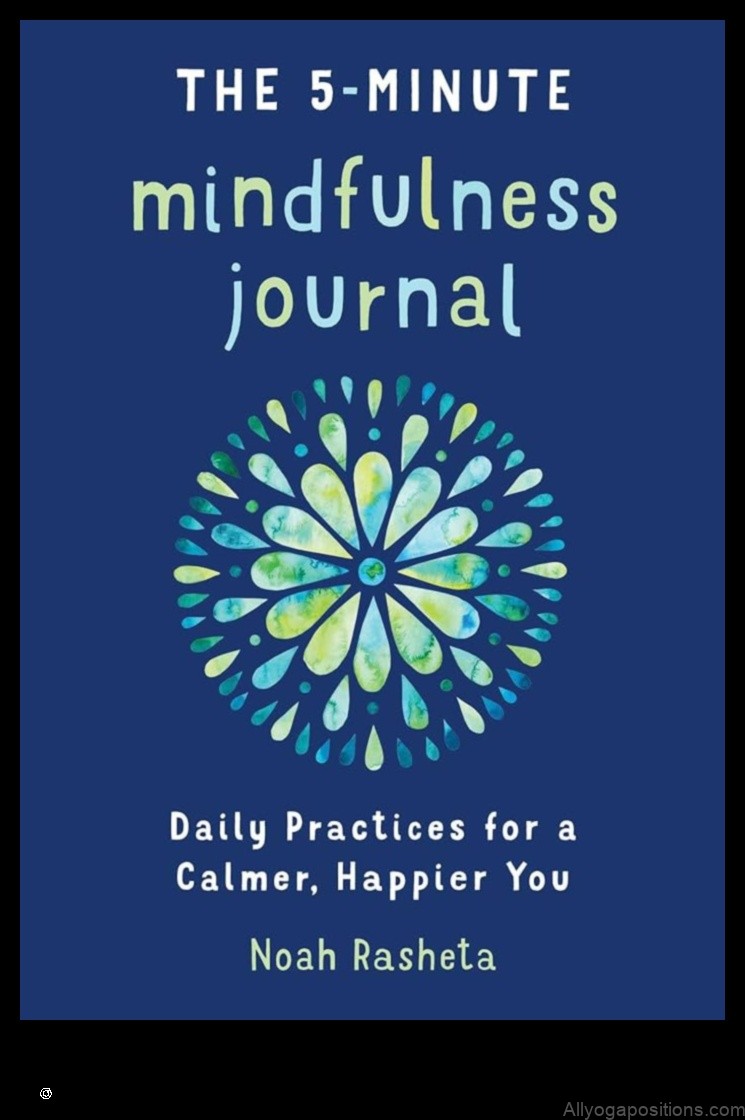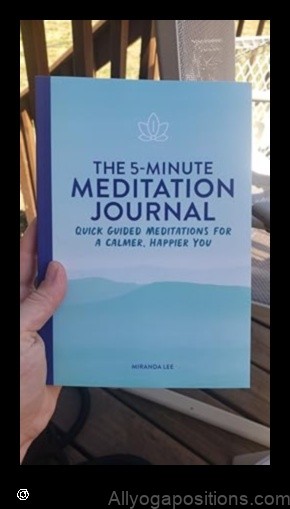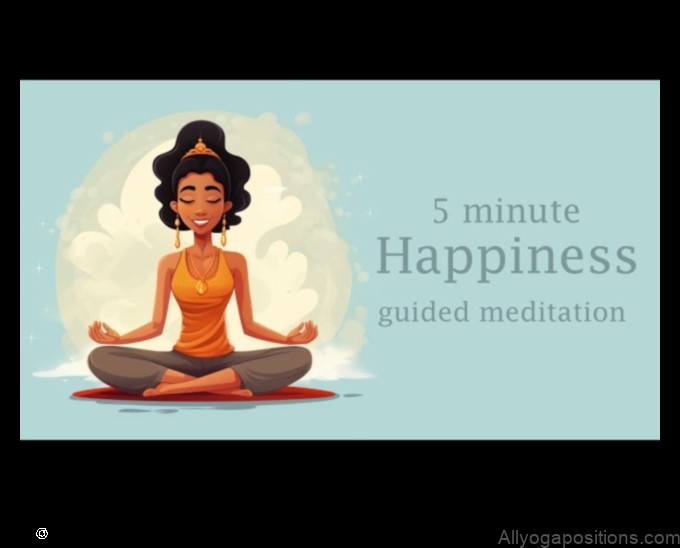
Meditation on the Go: Incorporating Mindfulness into a Busy Lifestyle
Meditation is a practice that has been shown to have many benefits for both physical and mental health. It can help to reduce stress, improve focus, and increase relaxation. However, it can be difficult to find time to meditate when you have a busy schedule.
This guide will provide you with tips and strategies on how to incorporate mindfulness into your busy lifestyle. You will learn how to meditate while on the go, how to stay mindful while working or running errands, and how to bring mindfulness into your relationships and other aspects of your life.
By following these tips, you can learn to live a more mindful and stress-free life, even if you have a busy schedule.

Benefits of Meditation for Busy People
Meditation has been shown to have many benefits for busy people, including:
- Reduced stress
- Improved focus
- Increased relaxation
- Improved sleep
- Reduced pain
- Improved mood
- Increased creativity
- Enhanced relationships
These benefits can help you to cope better with the stresses of a busy lifestyle and live a more balanced and fulfilling life.
How to Meditate for Busy People
Meditation doesn’t have to be complicated or time-consuming. You can meditate for just a few minutes each day, and it can still have a positive impact on your life.
Here are a few tips for meditating for busy people:
- Find a time and place that is quiet and free from distractions.
- Sit in a comfortable position, either cross-legged on the floor or in a chair with your feet flat on the ground.
- Close your eyes and focus on your breath.
- Breathe in through your nose and out through your mouth.
- As you breathe, focus on the sensations of your breath. Notice the feeling of the air as it enters and leaves your body.
- If your mind wanders, gently bring your attention back to your breath.
- Continue to meditate for as long as you like. Even a few minutes of meditation can be beneficial.
With practice, you will be able to meditate for longer periods of time and experience the full benefits of this practice.

Tips for Making Meditation a Habit
If you want to make meditation a regular part of your life, it’s important to make it a habit. Here are a few tips:
- Set aside a specific time each day for meditation.
- Make it a priority. Just like you would make time for other important things in your life, such as work or school, make time for meditation.
- Find a meditation teacher or group. Having someone to support you and guide you can be helpful.
- Use meditation apps or online resources. There are many resources available to help you learn how to meditate.
- Be patient. It takes time to develop a meditation practice. Don’t get discouraged if you don’t see results immediately. Just keep practicing and you will eventually reap the benefits.
With practice, meditation can become a natural part of your life and you will be able to reap the benefits of this practice every day.
Common Myths About Meditation
There are many myths about meditation that can prevent people from trying it. Here are a few of the most common myths:
- You have to be good at it.
- You have to sit in a certain position.
Topic Answer Meditation Meditation is a practice that involves focusing the mind on a single object, thought, or activity. It has been shown to have a number of benefits for both physical and mental health, including reducing stress, improving sleep, and boosting mood. Mindfulness Mindfulness is a state of awareness in which you are paying attention to the present moment, without judgment. It is a key component of meditation, and it can be practiced in a variety of ways, including through yoga, tai chi, and qigong. Busy lifestyle A busy lifestyle can make it difficult to find time for meditation, but it is important to make time for this practice, even if it is just for a few minutes each day. Meditation can help you to manage stress, improve your focus, and reduce your risk of burnout. Stress management Meditation is a powerful tool for stress management. It can help you to relax, reduce your heart rate and blood pressure, and improve your overall mood. Relaxation Meditation can help you to relax and de-stress. It can also help you to improve your sleep and reduce your risk of chronic pain. II. Benefits of Meditation for Busy People
Meditation has been shown to have a number of benefits for busy people, including:
- Reduced stress and anxiety
- Improved focus and concentration
- Increased creativity and productivity
- Better sleep
- Reduced pain
- Improved mood
- Enhanced self-awareness
- Greater emotional resilience
These benefits can help busy people to cope better with the stresses of everyday life, and to perform better at work and in other areas of their lives.
III. How to Meditate for Busy People
Meditation is a practice that can be done anywhere, at any time. It doesn’t require any special equipment or clothing, and you can do it for as little as five minutes a day. If you’re new to meditation, or if you’re struggling to make time for it in your busy schedule, here are a few tips to help you get started:
- Find a quiet place where you won’t be disturbed.
- Sit in a comfortable position, with your back straight and your feet flat on the floor.
- Close your eyes and focus on your breath.
- Breathe in slowly and deeply through your nose, and exhale slowly and completely through your mouth.
- As you breathe, let go of any thoughts or worries that come into your mind.
- Focus on the feeling of your breath as it flows in and out of your body.
- If your mind wanders, gently bring your attention back to your breath.
- Continue to meditate for as long as you like.
Meditation can be a great way to relax and de-stress, and it can also help you to focus, improve your mood, and reduce anxiety. If you’re looking for a way to incorporate mindfulness into your busy lifestyle, meditation is a great option.
IV. Tips for Making Meditation a Habit
Meditation is a powerful practice that can benefit busy people in many ways. However, it can be difficult to make time for meditation when you’re constantly on the go. If you’re struggling to make meditation a habit, here are a few tips:
- Start small. Don’t try to meditate for hours on end. Just start with a few minutes each day and gradually increase the amount of time you meditate as you get more comfortable with the practice.
- Find a time and place that works for you. Meditation is best done in a quiet, comfortable setting where you won’t be disturbed. If you can’t find a dedicated space for meditation, try meditating while you’re commuting, taking a break at work, or waiting in line.
- Make meditation a priority. Just like any other habit, meditation takes practice to develop. If you want to make meditation a part of your life, you need to make time for it each day. Even if you’re feeling stressed or busy, take a few minutes to meditate. It will be worth it in the long run.
- Find a meditation teacher or group. If you’re new to meditation, it can be helpful to have someone to guide you. A meditation teacher can teach you the basics of meditation and help you overcome any obstacles you may encounter. Meditation groups can also be a great way to connect with other people who are interested in meditation.
- Be patient. Meditation is a journey, not a destination. It takes time and practice to develop a meditation practice that works for you. Don’t get discouraged if you don’t see results immediately. Just keep practicing and you will eventually reap the benefits of meditation.
V. Common Myths About Meditation
There are many myths about meditation that can prevent people from trying it or making it a regular part of their lives. Here are some of the most common myths, along with the facts:
-
Myth: Meditation is only for people who are spiritual or religious.
Fact: Meditation is not a religious practice, and it does not require you to believe in any particular religion or belief system. Meditation is simply a way to quiet your mind and focus on the present moment.
-
Myth: Meditation is difficult to learn.
Fact: Meditation is actually very easy to learn. There are many different ways to meditate, and you can find a method that works for you. Even just a few minutes of meditation each day can have a positive impact on your life.
-
Myth: Meditation makes you lazy.
Fact: Meditation can actually help you to be more productive. When you meditate, you are training your mind to focus and concentrate. This can help you to be more productive at work, school, or in other areas of your life.
-
Myth: Meditation is a waste of time.
Fact: Meditation is one of the most valuable things you can do for yourself. It can help you to reduce stress, improve your mood, and increase your overall well-being.
VI. Meditation for Specific Busy People
Meditation can be practiced by people of all ages, occupations, and lifestyles. However, there are some specific modifications that can be made to make meditation more accessible and beneficial for busy people.
Here are a few tips for meditating as a busy person:
- Find a time of day that works for you. Meditation doesn’t have to be done at the same time every day, but it’s helpful to find a time when you’re unlikely to be interrupted.
- Shorten your meditation practice. If you’re short on time, you can still meditate for a few minutes each day. Even a few minutes of meditation can have a positive impact on your mind and body.
- Make meditation a part of your daily routine. Just like brushing your teeth, meditation is a healthy habit that can be incorporated into your daily life.
- Find a meditation technique that works for you. There are many different meditation techniques available, so experiment until you find one that you enjoy and that helps you to relax and focus.
Meditation can be a powerful tool for busy people. By taking a few minutes each day to meditate, you can reduce stress, improve your focus, and increase your overall well-being.
VII. Meditation Apps and Resources
There are a number of different meditation apps and resources available that can help you get started with meditation or take your practice to the next level. Here are a few of our favorites:
- Headspace: Headspace is one of the most popular meditation apps on the market. It offers a variety of guided meditations for beginners and experienced meditators alike.
- Calm: Calm is another popular meditation app that offers a variety of features, including sleep meditations, music, and relaxing sounds.
- InsightTimer: InsightTimer is a free meditation app that offers a wide range of meditations, including talks, courses, and sleep music.
- Buddhify: Buddhify is a meditation app that’s designed specifically for busy people. It offers short, guided meditations that can be done anywhere, anytime.
In addition to these apps, there are also a number of other resources available that can help you learn more about meditation and mindfulness. Here are a few of our favorites:
- Dhamma.org: Dhamma.org is a website that offers a variety of free resources on meditation and mindfulness, including guided meditations, talks, and articles.
- Mindfulness.org.uk: Mindfulness.org.uk is a website that provides information on mindfulness and how it can be used to improve your life.
- Tara Brach: Tara Brach is a renowned meditation teacher who offers a variety of online courses and workshops on meditation and mindfulness.
How to Deal with Obstacles to Meditation
There are many different obstacles that can prevent people from meditating, including:
Lack of time: One of the biggest challenges to meditation is finding the time to practice it. If you’re busy with work, family, and other commitments, it can be difficult to set aside time for meditation. However, it’s important to remember that even a few minutes of meditation can be beneficial. Even if you can only meditate for five minutes a day, it’s better than nothing.
Discomfort: Another common obstacle to meditation is discomfort. Sitting still for long periods of time can be difficult, especially if you’re not used to it. If you find yourself getting uncomfortable during meditation, try adjusting your position or using a cushion or pillow to support your back. You can also try meditating while lying down, if that’s more comfortable for you.
Mind wandering: It’s normal for your mind to wander during meditation. When this happens, simply acknowledge your thoughts and gently bring your attention back to your breath or your meditation object. Don’t get discouraged if your mind wanders; it’s part of the process. With practice, you’ll be able to stay focused for longer periods of time.
Negative thoughts: During meditation, you may experience negative thoughts, such as feelings of anxiety, sadness, or anger. If this happens, don’t try to suppress or ignore these thoughts. Instead, simply acknowledge them and let them pass. Over time, you’ll learn to let go of these negative thoughts and emotions, which will allow you to experience a deeper level of meditation.IX. The Power of Meditation for Busy People
Meditation has been shown to have a number of benefits for busy people, including:
- Reduced stress and anxiety
- Improved focus and concentration
- Increased creativity and problem-solving skills
- Improved sleep quality
- Enhanced emotional regulation
- Greater sense of well-being and happiness
These benefits can help busy people to cope better with the stresses of everyday life, perform better at work and school, and enjoy more fulfilling relationships.
If you are a busy person looking for ways to improve your mental and emotional health, meditation is a powerful tool that can help you achieve your goals.
X. FAQ
Q1: What is meditation?
A1: Meditation is a practice that involves focusing the mind on a particular object, thought, or activity in order to achieve a state of mental calmness and relaxation.
Q2: What are the benefits of meditation for busy people?
A2: Meditation can offer a number of benefits for busy people, including reducing stress, improving focus and concentration, boosting creativity, and increasing happiness and well-being.
Q3: How can I get started with meditation?
A3: There are many different ways to meditate, and the best way to get started is to find a method that works for you. Some simple tips for getting started include:
* Find a quiet place where you won’t be disturbed.
* Sit in a comfortable position, either cross-legged on the floor or in a chair with your feet flat on the ground.
* Close your eyes and focus on your breath.
* Bring your attention to your thoughts and feelings as they arise, and let them go without judgment.
* Continue to meditate for as long as you like, or until you feel relaxed and at peace.Table of Contents
Maybe You Like Them Too
- Upward Facing Two-Foot Staff Pose A Guide to This Inverted Yoga Pose
- ‘Mayurasana’ The Peacock Pose That Will Help You Soar
- Reclining Bound Angle Pose A Restorative Yoga Pose for Deep Relaxation
- Yoga for Emotional Release Let Go of the Past and Surrender to the Present
- Yoga for Emotional Resilience Find Your Inner Strength and Courage
